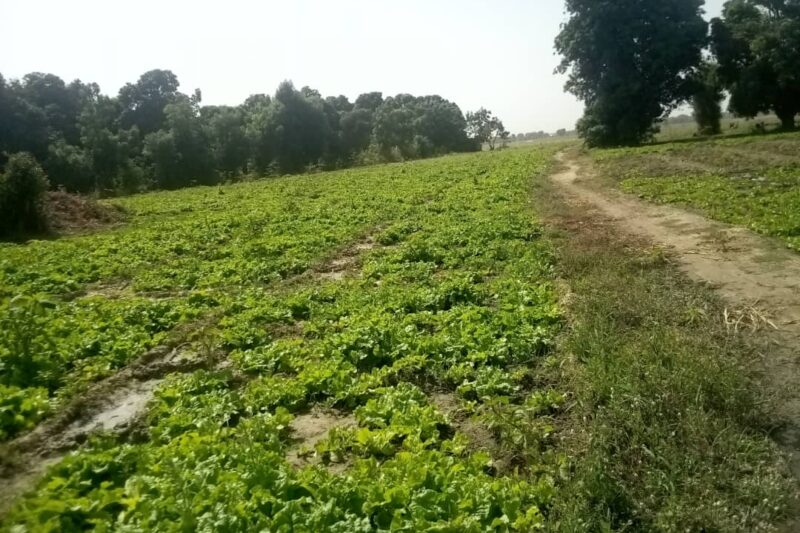After weeks of tension and uncertainty, governor brokers truce between farmers and herders to ‘foster peace and harmony’
Borno State governor Babagana Zulum has stepped in to try to put an end to the annual, often deadly, clashes between Fulani herders and farmers by brokering a truce between the two parties.
Zulum facilitated the truce in Gamboru Ngala, in the central part of Borno State, to “foster peace and harmony”.
On his official Facebook page, the governor said the truce was brokered on Monday, January 8, after weeks of tension and uncertainty.
At a “peace meeting” in the town, Zulum urged those involved to shun all acts that could lead to violence.
“Borno is a state with agrarian communities. We have Fulanis, we have Shuwas and we have Kanuris who are nomads as well. We have the same culture and the same tradition. Therefore, I urge all the people of Borno to be law-abiding and to ensure they live in peace with one another.”
Zulum said the state was taking all necessary measures to prevent clashes between the herders and farmers in Borno.
He announced the constitution of a committee to investigate the causes of conflicts.
According to his Facebook page, Zulum made the announcement while addressing the media after food items and ₦221,7 million were distributed to 67,454 families.
“Let me use this opportunity to announce [the establishment of] a committee that will look into the farmers and herders conflicts in all 27 local government areas of Borno State.”
He said the committee would, among other things, re-establish the defunct cattle routes and identify grazing reserves that were not being adequately used. He emphasised that the committee’s recommendations would guide the government in addressing the root causes that had led to conflicts between farmers and herders.
The committee would be chaired by Tijjani Gusamala, Special Adviser designate, and include representatives from the police, the department of state services, Emirate councils, Miyetti Allah, the Alhaya Association and the governor’s office.
In recent weeks, irrigation farmers in the Dikwa Local Government Area have complained bitterly about herders’ livestock destroying their farmlands.
There was less rainfall in the Lake Chad Basin during last year’s rainy season, which resulted in there being too few grazing areas for the herders’ livestock.
The Nigerian Meteorological Agency had predicted lower-than-normal rainfall so it was expected that the herders would travel elsewhere to find grazing land for their animals.
Garba Satoma, 46, is a wet-season farmer but when his crops were destroyed, he decided to try his hand at irrigation farming, otherwise known as a “dry-season” farming.
He was displaced from his ancestral hometown 10 years ago and has been taking refuge in Dikwa.
“I planted crops during the rainy season and I was expecting to have a bumper harvest. Instead, my crops were decimated by quelea birds and locusts. I was left with nothing.
“I decided to invest in irrigation farming to try to recover what I had lost.
“I spent a huge amount of money on irrigation systems and my crops were growing well. I was hoping to harvest my crops in the next few weeks.”
But when Satoma went to his farm on Monday morning as usual, he became confused because there were no crops left on his farm.
“I thought it was not my farm – that I was on the wrong farm. I went to my neighbour’s farm and discovered he also did not have any crops. We realised that herders had invaded our farms overnight and their livestock had eaten all our crops.”
Satoma said he was shocked and felt weak. He went home because he felt ill.
His wife, Amina, said: “He couldn’t believe what he saw and kept on saying unintelligible things. We have been counselling him, but he is not responding positively. And we don’t know what to do next.”
Usman Kalwa, also a dry-season farmer, said: “Since I was displaced by Boko Haram [the Jamā’at Ahl as-Sunnah lid-Da’way Wa’l-Jihād – JAS] 10 years ago, I have been working hard to take care of my family because I don’t believe in begging as many other internally displaced persons do. I invested heavily in irrigation farming. I do both dry- and wet-season farming. I went to my farm on Monday morning, but there was nothing left. All I saw was the pawprints of livestock. I don’t have any idea of how to take care of family going forward.
“I was thinking of going into the bushes to fetch firewood, but it’s not safe. Friends who go into the bushes have told me about terrifying encounters with insurgents.”
Zanna Modu Ali, a community leader in Dikwa, told RNI that every farmer in the area was aware of the “atrocities” committed by the herders but said there was nothing they could do about it.
“We are helpless. The herders are heavily armed with sophisticated weapons – and they are ready to kill. As a poor farmer what can you do? There have been farmers who stood their ground and confronted the herders but they have mostly ended up wounded or killed. A few months ago, herders shot two of them. They are violent and aggressive. Ours is an agrarian community and there are many pastoralists among us. We want the government to take immediate action because their activities are a threat to food security.”
ADAMU ALIYU NGULDE






